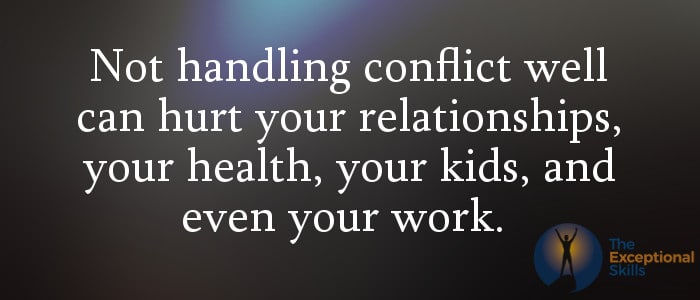
Jesus has arrived in Capernaum. This fishing village, nestled on the banks of the Sea of Galilee. The village came to be known as Jesus’ “own city” (Matthew 9:1). It is named 16 times in the New Testament. It lay close to the border between the Roman-appointed leaders, or tetrarchs. Capernaum was near to the border between the realms of Herod Antipas and Herod Philippi. Antipas was a loyal leader to the Roman and didn’t face much of a threat. So some scholars perceive that there wasn’t the need for a Roman garrison in the town. So the need for conflict resolution? This might be critiqued with the text relating to the Roman Centurion (Matthew 8:5-13).

What happens just before the passage?
Jesus has journeyed from Caesarea Philippi to Mount Hermon, as shown above. Some consider he may have journeyed to Mount Tabor, to the south west of Tiberias. Here is where the ‘transfiguration’ occurred. Upon his return down the mountain, Jesus healed a boy from great sickness, one that the disciples weren’t able to cure. They are beginning to doubt themselves. Jesus then tells them again of his death and resurrection – they are now very agitated. Wouldn’t you be? They have a need for conflict resolution here.
Upon entering Capernaum, there is a passage relating to the paying of Temple Tax. This ‘fiscus judaicus‘, a payment to the Romans to maintain the upkeep of the Temple, may be a later insertion. For this may have been more appropriate in 70AD, after the destruction of the Temple in Jerusalem. It was Emperor Vespasian who “co-opted the tax to pay for a temple called Jupiter Capitolinus in Rome“. [1] The essence of the passage is that despite Roman authoritarian rule, God rules overall. Hence the latter verse relating to the finding of the required payment in a fishes mouth (Matthew 17:27).
How do we live as one?
These agitated disciples are trying to use ‘everyday thinking’ to find something understandable in all that’s going on. We could be among them possibly.
So “who’s the greatest here?” one asks (Matthew 18:1) – although it’s referenced to the Kingdom of Heaven, or is that here on Earth as well?
Jesus responds with some of the most well known lines in the New Testament. “Who ever welcomes one such child in my name welcomes me“; there’s talk of ‘cutting off your handed your foot‘ less you stumble; or even to ‘remove your eye, else you be thrown in the hell of fire‘. [2] There’s also reference to the searching of the missing sheep – the one in the 100.
Can I be the winner?
Our passage this week isn’t about winning. No, this is about resolving conflict, maintaining relationships. In any society, there is a need for conflict resolution. If we step back a bit, take in the greater vista of the passages before and after this specific passage, we may see something different. We can see that Jesus is highlighting that all are welcome (Matthew 18:14). Furthermore, we should seek to build the bonds between us, no matter what (Matthew 18:22).
It appears to hinge upon an Old Testament verse found in Deuteronomy:
“A single witness shall not suffice to convict a person of any crime or wrongdoing in connection with any offense that may be committed. Only on the evidence of two or three witnesses shall a charge be sustained.”
Deut 19:15 (NRSV)
Seems akin, in a way, to Safeguarding procedures today. Don’t go alone.
I feel that Jesus is really emphasising community living here, in harmony. [3] Rather than having simple procedures upon which the charge of guilty could be implied, we need substantial evidence and witnesses. Think of the woman found to commit adultery (John 8:1-11) – how many “witnesses” were there? That’s a rhetorical question…

Here, the key line in our text this week is “you will have regained that one” (Matthew 18:15).
Jesus then repeats that phrase used earlier about “loosing” and “binding“. He had used it when speaking about the ‘keys of the kingdom‘ to Peter. We were given permission to interpret, to discuss, ‘midrash’ might be the word the Jews might use here. The aim was to restore community, not to allow it to break apart.
Relationships with each other, with God, are the key part of the discipleship journey.
What now?
With Covid-19 those relationships might have been strained. People could have been isolated. Definitely people are stressed out due to lockdown, release, going back into local lockdown, not exactly knowing who they can visit or where they can go – with or without a face mask. Here, we may have a need for conflict resolution. It’s at such times as these where we might wish to look at those who were near to us before the pandemic.
How might we re-establish or strengthen those relationships in possibly new ways now?
If there have been difficulties, misunderstandings, how might we look to resolve them? Not to dig deep and bury them, but bring them out in discussion. These discussions will need sensitivity, compassion, and also being willing to listen carefully to all of the arguments.
Strive to build relationships.
[1] Coogan, Michael D., ed., The New Oxford Annotated Bible : New Revised Standard Version With The Apocrypha, (Oxford : Oxford University Press, 2010), p. 1772.
[2] Note here in the Greek, Hell is Gehenna. This was a valley, linked to ‘dead bones’, the burial place for many who were sacrificed. Some perceive the references in Scripture – Jesus alludes to it eleven times – are symbolic, whilst others consider it a place for the future. Jews would possibly consider Hades as a resting place post death – this certainly wasn’t Hades.
[3] Aymer, Margaret., Kittredge, Cynthia Briggs., Sánchez, David A., eds., The New Testament Fortress Commentary on the Bible, (Minneapolis : Fortress Press, 2014), pp. 156-157
Cover Image: from https://www.theexceptionalskills.com/conflict-resolution-guide/
3 thoughts on “The Need For Conflict Resolution?”
Comments are closed.